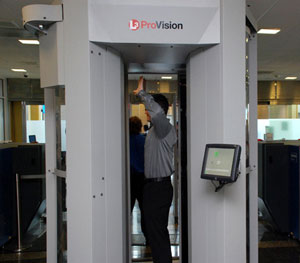


In Peru, they are no longer taking everyone's temperature upon entry to indoor spaces, but they could reinstate the practice anytime. Add it to your travel kit with extra masks and sanitizers. Traveling with your own thermometer makes perfect sense. what should you do? Here's where having advance information about your temperature could save you time and possibly money if you're at risk of being delayed. I don't believe that airlines are still tracking people for signs of illness but if you or someone you're traveling with presents with a fever on the day your flight departs. What is normal for you? What does a fever feel like? Should you suppress your fever with medication? Should you isolate yourself? Why You Should Travel With Your Own Thermometer This is the reason travelers need to learn about fever and how it affects their body before they get to the airport. But having a fever could be an indicator of illness or something else. Unless you voluntariliy check yourself for fever, it's not likely anyone else will notice.

While having an elevated temperature may not always be a big deal, what happens if you have a fever? Should you travel? The risk of being quarantined due to fever is very low depending on where you travel. However, taking temperatures upon entry to indoor spaces has declined and I'm happy to report that dreaded face shields are no longer required on trains and public buses, but face masks are. It was commonplace to have your temperature taken not only at the airport, but upon entry to archaeological sites incluging Machu Picchu, and even restaurants. Most recently,on June 9, 2022, Peru announced that everyone must show proof of vaccination or negative covid tests to enter Peru, board trains, enter hotels and even some restaurants. In South America, citizens are still wearing masks, social distancing and dealing with other covid restrictions from time to time. Health protocols to prevent the spread of covid-19 in the United States vary from state to state and the same applies to other countries who have their own public health systems. One of the most prevalent practices implemented by businesses, US airports and governments, was the use of thermal body scanning to identify people with a fever who may be sick or about to be sick. The only thing we know for sure is that it will continue to change as we learn more about covid-19 and its affect on the well being of otherwise healthy humans. The travel industry has been dramatically and irrevocably altered with new rules for domestic and international travelers. It's been over two years since covid-19 struck the earth like a meteor.


 0 kommentar(er)
0 kommentar(er)
